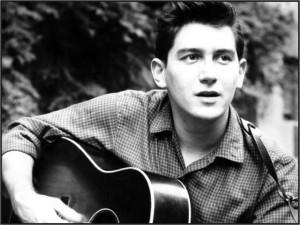Folk DJs Host Special Shows on April 9, 10
At least several folk DJs will mark the 40th anniversary of Phil Ochs’ passing on April 9 by airing special programs that weekend, while others have been playing his songs this week.
Sonny Ochs, Phil’s sister, hosts a special three-hour extended version of Folk Music & Other Stuff on WIOX Community Radio in New York’s Catskills (streaming at www.wioxradio.org) on Friday, April 8, from1-4 p.m. ET.
Artie Martello from upstate New York plans to post a special two-hour program on Mostly Folk entitled The Final Days of Phil Ochs. It will feature 20 songs recorded by Phil and others, as well as a discussion with Sonny Ochs, about his final four months. Mostly Folk will be available online beginning at 7 a.m. ET at www.mostlyfolk.org, as well as at www.itunes.apple.com/us/podcast/mostlyfolk/id928968502?mt=2 and www.tunein.com/radio/Mostly-Folk-with-Artie-Martello-p527841.
Sonny Ochs also joins Jon Stein, host of Hootenanny Café on WTBQ-FM (www.wtbq.com) in New York’s Orange County, when he remembers the life and times of Phil Ochs on Sunday, April 10, during a two-hour special beginning at 9 p.m. ET that can also be heard @ www.tunein.com/radio/Hootenanny-Café-p137978/ and will be archived at www.talentconnections.com/podcasts.shtml.
Sonny Ochs Reflects on Her Brother
Herself the host of a radio show in upstate New York, Sonny Ochs previously shared some thoughts with AcousticMusicScene.com about her younger brother.
He was an introverted young man who loved going to the movies to watch John Wayne, Audie Murphy and actors of that ilk during his early years. He became an excellent clarinet player while in junior high school. He was good at writing as well.
We grew up in an apolitical family, but when he went to college he had a roommate named Jim Glover whose father was a socialist. Phil learned a lot from him and was able to wed his music to events of the day, thus becoming a topical songwriter. He won a guitar from Jim in a bet on the 1960 presidential election. This gave him the tool he needed to accompany his songs. The rest is history.
Phil went on to become a very prolific writer, but was brought down by manic depression, which runs in the male side of our family. He ended up committing suicide in 1976, at the age of 35.
With the U.S. engaged in foreign wars and conflicts today as it was in the 1960s, Phil Ochs’ music is as relevant now as it was then, and his sister has been helping to keep it alive. Since 1983, Sonny Ochs has been producing Phil Ochs Song Nights that feature talented artists who perform both Phil’s songs and their own to show that the art of topical songwriting is still alive and well. These shows have taken place primarily up and down the U.S. eastern seaboard but also in the midwest, far west and Canada.
Sonny Ochs also spoke about her brother in the 2011 documentary Phil Ochs: There But For Fortune. Painting what Entertainment Weekly called “an essential portrait of an artist who ought to be better known,” its airing as part of PBS Television’s Emmy Award-winning American Masters series in 2012 helped expose more people to Phil Ochs and his music. The film features commentary by Joan Baez, Billy Bragg, Tom Hayden, Christopher Hitchens, Sean Penn, Pete Seeger, Peter Yarrow and others – interspersed with performance clips of Ochs.
Of the documentary, Sonny Ochs told AcousticMusicScene.com in 2011: “It is really interesting because it shows Phil against a background of the times, and it doesn’t try to hide his blemishes. It is very honest and strong, which is why audiences seem to like it so much. It is my hope that more people will hear Phil’s music and be amazed at its relevancy [more than] 40 years after it was written. I am very proud of him!”


Like/Follow Us!